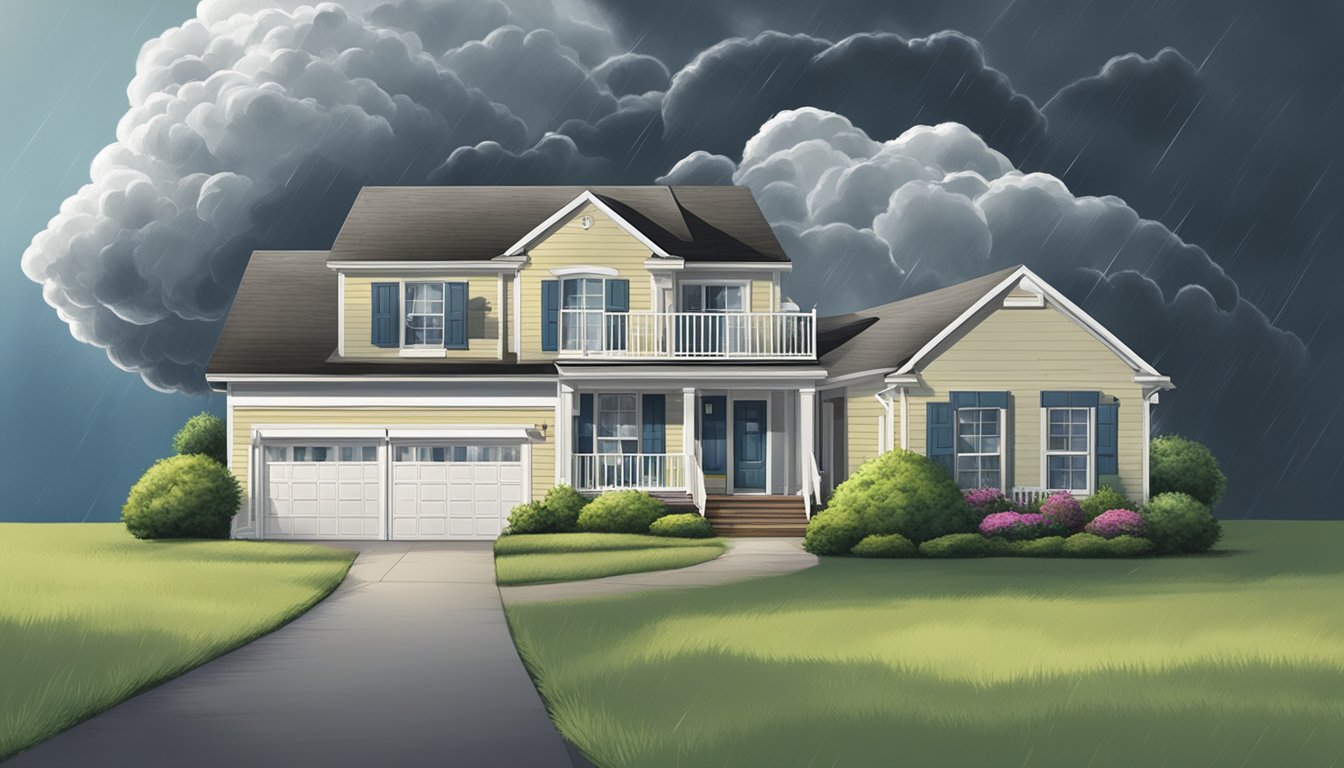Understanding Insurance Terms
When navigating homeowners insurance, it’s crucial to grasp key terms that shape your coverage.
Knowing these terms helps ensure you are properly protected and understand your policy’s limits and responsibilities.
What Does Deductible Mean?
A deductible is the amount you pay out-of-pocket before your insurance company steps in to cover a loss.
For instance, if a storm damages your roof and the repair costs $5,000, but your deductible is $1,000, you will pay the first $1,000, and your insurer will cover the remaining $4,000.
Deductibles can vary based on your policy and can influence your premium costs.
What Does Liability Coverage Mean?
Liability coverage in homeowners insurance protects you financially if someone gets injured on your property or if you cause damage to someone else’s property.
If a guest slips and falls inside your home, your liability coverage can help pay for their medical expenses and any legal fees if they decide to sue.
This coverage is a vital part of your policy.
What Does Coverage Limit Mean?
A coverage limit is the maximum amount your insurance will pay for a covered loss.
For example, if you have a coverage limit of $200,000 for your house and it costs $250,000 to rebuild after a major fire, your insurance policy will only cover up to $200,000.
Understanding your coverage limits is essential to ensure you have adequate protection for various risks.
What Does Insurance Policy Mean?
An insurance policy is a contract between you and your insurance company detailing the terms of your coverage, premium, and any exceptions.
It outlines what is covered, the coverage limits, and your rights and obligations.
Reviewing your policy thoroughly helps you understand your protections and what situations may not be covered.
What Does Replacement Cost Mean?
Replacement cost refers to the amount it would take to rebuild your home or replace your belongings without deducting for depreciation.
If your home is destroyed, a replacement cost policy enables you to rebuild it to its original state.
It’s different from cash value insurance, which considers depreciation, paying you less over time.
Insurance Application Examples

Understanding how homeowners insurance applies in real-life situations helps illustrate its importance.
You’ll see how insurance can cover various scenarios involving your home, property, and belongings.
Examples of Homeowners Insurance in Practice
Fire Damage and Home Repair
If a fire damages your home, homeowners insurance can cover the repair costs.
For example, it might pay to fix your roof and other structural elements.
Protecting your property includes repairing walls, floors, and other essential parts.
Your personal belongings are also covered, so you can replace items lost in the fire.
Property Damage from Natural Disasters
Homeowners insurance can help if a windstorm or earthquake damages your property.
Filing a claim means your insurer will pay for the necessary repairs.
In some areas, flooding or earthquake insurance may be required separately.
Always check what your policy covers to stay protected.
Theft and Personal Property Replacement
If someone breaks into your home and steals your belongings, homeowners insurance helps replace them.
This includes valuables like electronics, jewelry, and furniture.
In many cases, you might need to file a police report as part of the claim process.
Liability for Injuries on Your Property
Homeowners insurance includes coverage for injuries to others on your property.
If a guest trips and falls, liability insurance can cover their medical payments.
Furthermore, if you’re found legally responsible, the policy might cover legal fees and damages.
Additional Living Expense Coverage
If your home becomes uninhabitable due to a covered event, homeowners insurance may cover additional living expenses.
This means paying for a hotel or rental home while repairs are completed.
This support ensures you’re not left without a place to stay.
Insurance-Related Terms

In the insurance industry, several key terms are important to understand for managing your home insurance policy and making informed decisions.
These terms cover various aspects of coverage, claims, and liabilities.
Related Terms
Mortgage: This is the loan you take out to buy your home.
Your lender typically requires you to have home insurance to protect their investment.
The insurance must cover at least the amount of the mortgage to ensure that repairs or reconstruction can be done in case of damage.
Limits: These are the maximum amounts your insurer will pay for a covered loss.
It’s crucial to know the limits of your policy to ensure they cover the cost of potential repairs or replacements, including personal belongings, furniture, and appliances.
Claim: This is a request you make to your insurer for payment based on the terms of your insurance policy.
Filing a claim is necessary for getting financial help with covered damages.
Knowing how to properly file a claim can speed up the repair process for your home.
Replacement: This refers to the cost needed to rebuild your home or replace damaged items without deducting for depreciation.
Unlike actual cash value, replacement cost gives you the amount required to replace damaged property with new items.
Earthquake Protection: Some policies do not automatically include earthquake protection.
If you live in an earthquake-prone area, you may need to add this coverage.
It helps cover damages specifically caused by earthquakes, which are typically excluded from standard policies.
Coverage Limits: These are specified amounts up to which your insurer will pay for certain types of damage.
Ensuring your policy has adequate coverage limits for various categories, such as loss of use or personal belongings, is essential to avoid unexpected out-of-pocket expenses.






